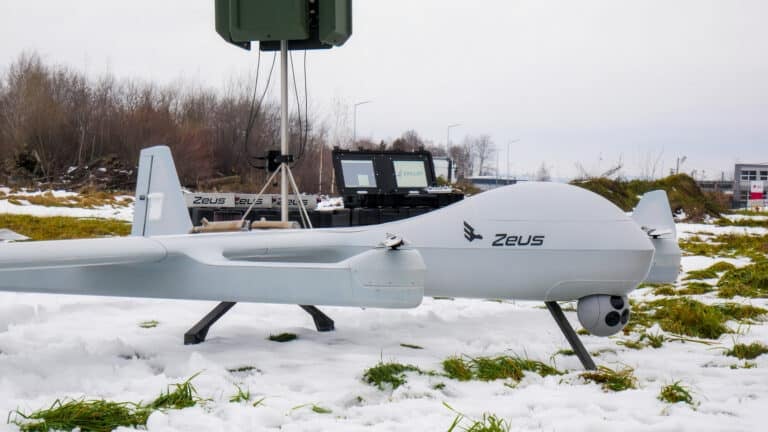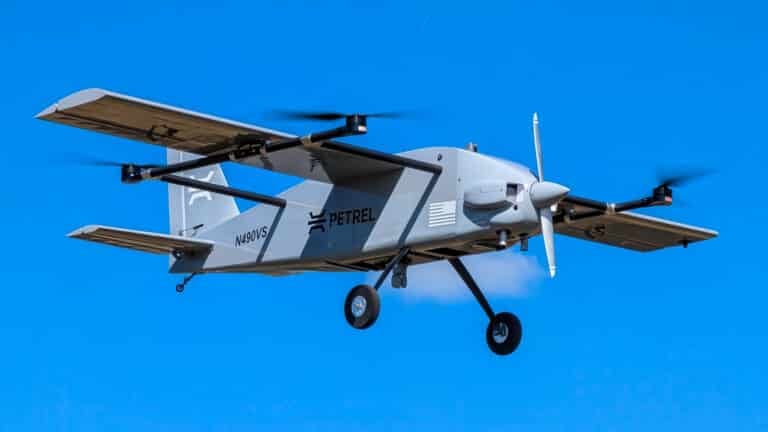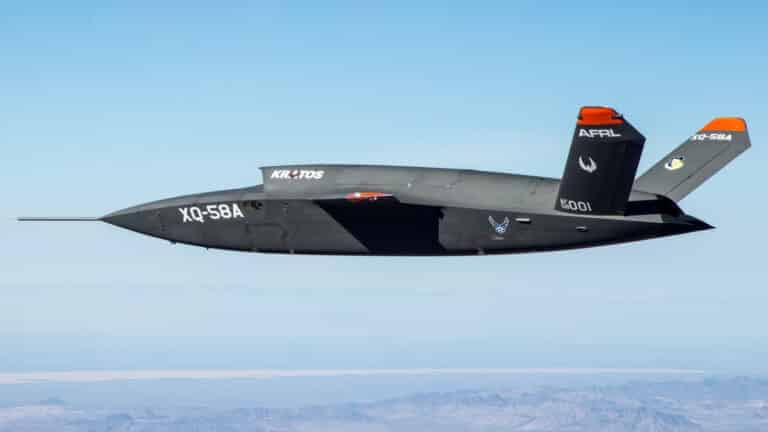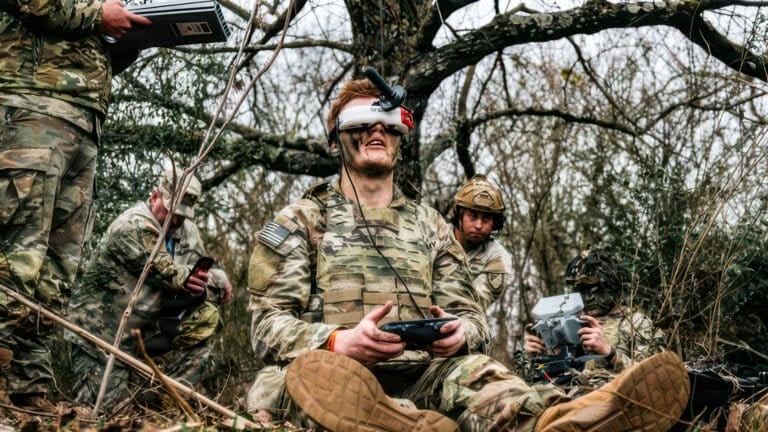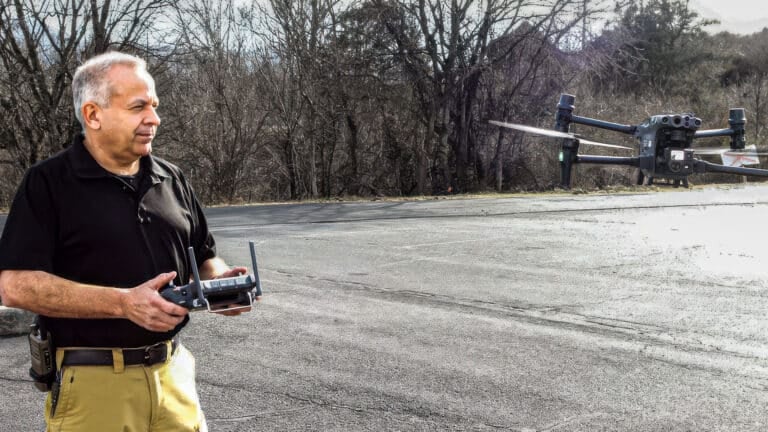Belgium Authorizes Military To Shoot Down Drones After Three Nights Of Suspected Espionage At Nuclear Weapons Base

Check out the Best Deals on Amazon for DJI Drones today!
Belgium’s chief of defence has authorized military personnel to shoot down unauthorized drones flying over the country’s military bases following three consecutive nights of suspected espionage operations at Kleine-Brogel Air Base, which houses U.S. nuclear weapons and F-16 fighter jets. The shoot-down order marks a significant escalation in Belgium’s response to what defense officials characterize as sophisticated reconnaissance missions targeting NATO’s nuclear deterrence infrastructure.
General Frederik Vansina, Belgium’s chief of defence, issued the authorization on Monday during an arrival ceremony for a new mine hunter in Zeebrugge.
“The order has been given to shoot them down,” Vansina told reporters, though he cautioned that drones can only be taken down if it can be done safely “without causing collateral damage.”
The authorization comes after professional-grade drones conducted systematic surveillance over Kleine-Brogel Air Base on October 31, November 1, and November 2, 2025.
Sophisticated Operations Evade Belgian Countermeasures
The drone incursions followed a deliberate operational pattern that demonstrates advanced capabilities beyond hobbyist equipment. Defense Minister Theo Francken told Belgian broadcaster RTBF that the first night involved “small drones to test the radio frequencies” of Belgian security services, followed by “big drones to destabilize the area and people” on subsequent nights.
Belgian police deployed helicopters and ground vehicles in pursuit but failed to intercept the aircraft. More significantly, the military’s drone jammers proved ineffective because the operators changed frequencies after testing Belgian radio systems. “An amateur doesn’t know how to do that,” Francken said, emphasizing the professional nature of the operations.
On Sunday evening, four drones were spotted over Kleine-Brogel, marking the third consecutive night of activity. The same evening, local police received reports of a dozen drones flying over the Mechelen-Zuid industrial estate, though authorities were unable to detect anything on site.
Strategic Target Houses Nuclear Weapons and F-16 Fleet
Kleine-Brogel Air Base represents one of NATO’s most sensitive military installations. While Belgium’s Ministry of Defense maintains its standard policy of neither confirming nor denying the presence of nuclear weapons, the Center for Arms Control and Non-Proliferation estimates that at least 100 U.S.-owned tactical nuclear weapons are stored across six NATO bases in five European countries, including Kleine-Brogel.
The base currently hosts Belgium’s F-16 fighter jet fleet and is preparing to receive F-35A aircraft beginning in 2027. Defense Minister Francken characterized the surveillance missions as targeting Belgium’s most strategic military assets. “They come to spy, to see where the F-16s are, where the munitions are, and other highly strategic things,” Francken told RTBF.
The timing is particularly significant: these incidents occurred just weeks after NATO’s Steadfast Noon nuclear exercise in October, which included participation from Kleine-Brogel.
Belgium Accelerates Counter-Drone Program Amid Criticism
Vansina confirmed that Belgium is implementing an accelerated program to protect against drone threats, with a comprehensive plan set to be presented to the Council of Ministers shortly. The urgency reflects Belgium’s acknowledgment that its counter-drone capabilities lag far behind the evolving threat.
“Currently, Belgium’s resources to combat such drones, including detection equipment, jammers and drone guns, are limited,” according to the official statement. Defense Minister Francken has been more blunt about the capability gap, telling La Première radio that Belgium is “four years behind” where it should be on anti-drone systems.
“We should have bought air defense systems to combat drones five or 10 years ago. NATO has been saying this for years,” Francken said. He noted that he has been defense minister for only nine months and has been “trying to accomplish a great deal” to close the capability gap.
Belgian media reports suggest the counter-drone package being prepared for the Council of Ministers includes approximately €50 million ($53 million USD) for detection and defeat measures. Vansina has outlined requirements for enhanced counter-UAS coverage, including additional detection equipment, jammers to disrupt control links, and weapons to defeat drones at short range.
Russian Connection Suggested But Not Confirmed
While Belgian officials stopped short of directly attributing the drone operations to Russia, Defense Minister Francken drew clear connections to broader patterns of Russian hybrid warfare across Europe. “The Russians are trying to do this in all European countries,” Francken said, though he added, “Is it the Russians now? I cannot say that, but the motives are clear.”
Francken has publicly stated that Russia is waging a hybrid war against the West, combining cyberattacks with efforts to sow instability. Russia has been blamed for multiple airspace incursions across Europe in recent months, including documented violations in Poland and Estonia, though Moscow has consistently denied NATO’s accusations.
The drone operations fit a pattern that Belgian authorities characterize as psychological disruption. “Personally, I think these drones often represent a form of hybrid threat. This is a way to create unrest. That has been Russia’s pattern for many years,” Francken told VRT NWS.
Residents Urged to Report Suspicious Drone Activity
Kleine-Brogel Air Base published guidelines for residents of Peer and surrounding areas to follow if they spot suspicious drones. “Suspicious activity should be reported to the police as soon as possible,” the guidelines state. Residents are encouraged to attempt photographing or recording video of any drones they observe.
The guidelines also warn against misinformation: “People should also not be misled by false reports on social media channels.” This caution reflects concerns about both genuine security threats and the potential for panic-inducing false reports that could further destabilize the situation.
Vansina acknowledged the practical challenges of engaging drones, particularly given that they “fly at night and are small and highly manoeuvrable.” The authorization to shoot down drones represents a significant policy shift, but the technical reality remains that successfully intercepting these sophisticated systems will require capabilities Belgium is still working to acquire.
DroneXL’s Take
Belgium’s shoot-down authorization represents the latest European escalation in response to what has become a sustained campaign of professional-grade drone surveillance targeting NATO military infrastructure. But the authorization also highlights a brutal reality we’ve been documenting for months: Europe’s counter-drone capabilities remain woefully inadequate against sophisticated military reconnaissance platforms.
We reported in September how Denmark experienced a week-long coordinated drone assault on multiple military bases that forced NATO to deploy a German warship for air defense. In October, we covered how Munich Airport shut down twice after a classified German security report confirmed the aircraft were military reconnaissance drones, not hobbyist quadcopters. Germany authorized shoot-down authority back in January, yet that legislation still hasn’t passed the Bundestag.
The pattern is clear: sophisticated drones can test radio frequencies, evade jammers by changing channels, outrun police helicopters, and conduct multi-night surveillance operations with impunity. Belgium’s failed interception attempts mirror Germany’s experiences, where over 530 drone sightings were recorded in just the first three months of 2025 over military bases, LNG terminals, and Ukraine supply routes.
What concerns us most is the capability gap. Minister Francken admits Belgium is “four years behind” on counter-drone systems. The proposed €50 million investment won’t deliver capabilities for over a year due to European procurement regulations. Meanwhile, these professional military platforms are mapping NATO’s nuclear weapons storage, F-16 positions, and ammunition depots.
The irony is painful: while Europe debates procurement timelines and authorization protocols, Ukraine deploys 9,000 drones daily and has become NATO’s de facto teacher on drone warfare. Yet Europe’s Defense Readiness Roadmap 2030 proposes spending €150 billion without meaningfully incorporating Ukrainian expertise or procurement speed.
Belgium’s authorization to shoot down drones is the right decision when nuclear weapons storage sites are being surveilled. But authorization without capability is just policy theater. Europe needs counter-drone systems that can actually detect military-grade platforms with encrypted communications, force them to land or jam them effectively, and distinguish them from legitimate commercial operations—all without requiring a year of procurement bureaucracy.
The real question isn’t whether Belgium has legal authority to shoot down drones. It’s whether Europe can field counter-UAS systems sophisticated enough to actually do it before the next reconnaissance mission maps out exactly where to strike.
What do you think? Share your thoughts in the comments below.
Discover more from DroneXL.co
Subscribe to get the latest posts sent to your email.
Check out our Classic Line of T-Shirts, Polos, Hoodies and more in our new store today!

MAKE YOUR VOICE HEARD
Proposed legislation threatens your ability to use drones for fun, work, and safety. The Drone Advocacy Alliance is fighting to ensure your voice is heard in these critical policy discussions.Join us and tell your elected officials to protect your right to fly.
Get your Part 107 Certificate
Pass the Part 107 test and take to the skies with the Pilot Institute. We have helped thousands of people become airplane and commercial drone pilots. Our courses are designed by industry experts to help you pass FAA tests and achieve your dreams.

Copyright © DroneXL.co 2026. All rights reserved. The content, images, and intellectual property on this website are protected by copyright law. Reproduction or distribution of any material without prior written permission from DroneXL.co is strictly prohibited. For permissions and inquiries, please contact us first. DroneXL.co is a proud partner of the Drone Advocacy Alliance. Be sure to check out DroneXL's sister site, EVXL.co, for all the latest news on electric vehicles.
FTC: DroneXL.co is an Amazon Associate and uses affiliate links that can generate income from qualifying purchases. We do not sell, share, rent out, or spam your email.




